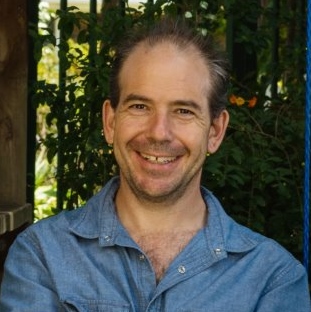
News

Uncovering the indefensible
OWN CORRESPONDENT
- What drew you to write about Craig Williamson?
I’m not sure. I was a student at Wits in the early 1990s and was a member of NUSAS – this was the dying days of apartheid and Special Branch had bigger fish to harass than a bunch of long-haired hippies, but because of Williamson we were paranoid about spies on campus.
I became intrigued with how someone could betray people he got close to and had become “friends” with. I was curious how someone could live this double life. I “bumped” into Williamson in 1995 when I was at Rhodes University. I had read a lot about Ruth First’s journalism – I wanted to be the kind of journalist that she was – and that was when I learnt that Williamson had been responsible for sending the parcel bomb that killed her, as well as a second parcel bomb that killed Jeanette Schoon and her six-year-old daughter.
I followed the Truth Commission and was intrigued with how Williamson managed to wriggle out of responsibility and escape any consequences for the terrible things he had done. I wanted to know if he felt any remorse.
- What was it like first meeting this man who committed such atrocities?
He was the last person I interviewed for the book. I had avoided contacting him, but in the end I had to take a deep breath and call him. It struck me that I knew so much about him – I’d interrogated all aspects of his life and he didn’t even know I existed. I was nervous that he would try to manipulate me.
- How would you describe him?
Unremorseful.
- What was it like spending all that time with him as he unfolded his side of his story?
I only spent time with him that morning – up until then I had got to know about him by going through documents, court transcripts, newspaper clippings, reports and through the eyes of the people who had known him.
- How did you go about writing the book, in terms of research?
My main research was interviewing people who had in one way or another encountered Williamson. I managed to track down someone who was in boarding school with him at St John’s more than 50 years ago, students at NUSAS (where he’d become the vice president), people who knew him in “exile” and a few of his former Special Branch colleagues.
The book is not only about Williamson; it is also about a generation of activists who helped bring about liberation – people whose stories haven’t really been told. In addition to the former student leaders, I also spoke to a former South African president, four former Cabinet ministers and an Academy Award winner.
- How did you manage your life and work around writing it – or were you able to dedicate your time to it?
I was lucky enough to get a Taco Kuiper Grant, which was enormously helpful, but I had to earn an income while writing, so I wasn’t able to work on it fulltime. I often woke up at four in the morning to work on it.
- How long did it take you from start to finish?
I started in 2010 but in 2012 my laptop was stolen in a burglary and I lost two years of work (of course, I hadn’t backed up). I was demotivated and hit the pause button. I started again about six months later and since then devoted at least two days a week to it. I now make back-ups of back-ups of back-ups and have all sorts of versions floating around the digital cloud.
- How has writing the book impacted on your life?
It’s made me realise how important it is to remember and record our history. I have thought a lot about betrayal, accountability and responsibility.
- How did your loved ones feel about you writing this book?
Everyone was supportive – even my wife, Jean, who had to share me with an unpleasant character for so many years. My father went through the questions I had planned to ask Williamson and advised me to delete some of the more hostile ones and Andrew, my brother-in-law, read the manuscript and gave me useful feedback.
My siblings have plastered social media with publicity for the book, and my mother has pushed up the sales by buying books for everyone she has ever met (thanks, Mom).
- What was your biggest learning from this experience?
Besides, backing up my work often? Actions have consequences – and although there are destructive people like Williamson, who were responsible for betraying, interrogating and killing, there are also decent people who risked their lives for freedom and democracy.
- What is next? Now I exhale…





heather miller
May 1, 2017 at 11:05 am
‘jonathan, this makes for very good and interesting reading.
thank you
heather miller’